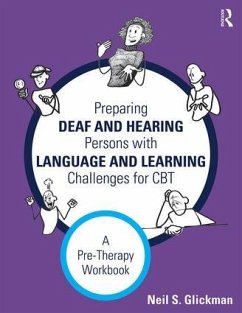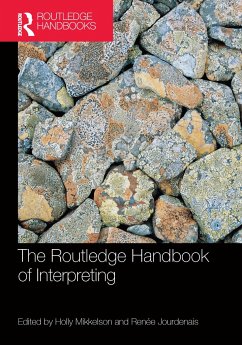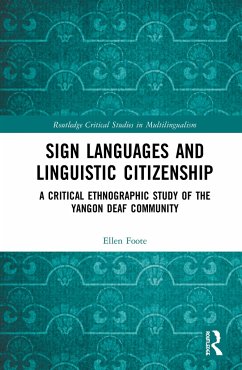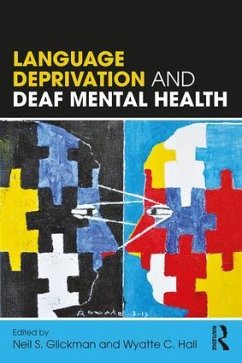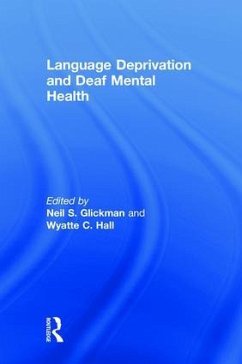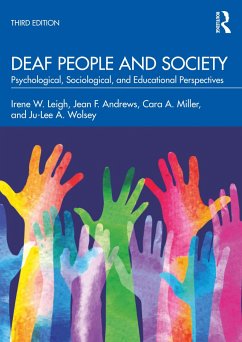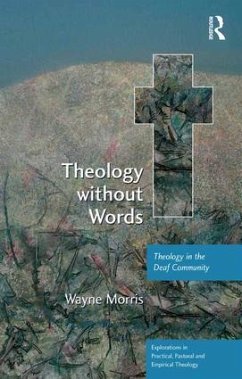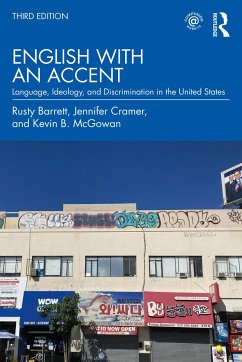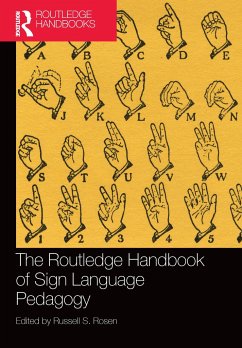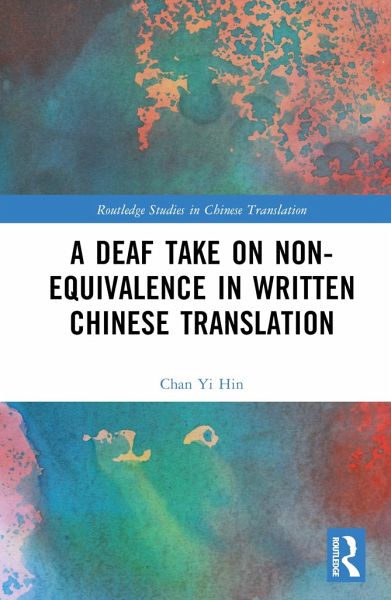
A Deaf Take on Non-Equivalence in Written Chinese Translation
Versandkostenfrei!
Versandfertig in 6-10 Tagen
144,99 €
inkl. MwSt.
Weitere Ausgaben:

PAYBACK Punkte
72 °P sammeln!
A Deaf Take on Non-Equivalence in Written Chinese Translation examines the issue of lexical non-equivalence between written Chinese and Hong Kong Sign Language (HKSL) translation, describing its theoretical and practical implications.This research foregrounds the semiotic resources in the Deaf community of Hong Kong by analyzing translation strategies exhibited by Deaf Hongkongers when they were invited to translate written Chinese passages with specialized and culturally specific concepts in a monologic setting. With discourse analysis as a framework, the major findings of this research were ...
A Deaf Take on Non-Equivalence in Written Chinese Translation examines the issue of lexical non-equivalence between written Chinese and Hong Kong Sign Language (HKSL) translation, describing its theoretical and practical implications.
This research foregrounds the semiotic resources in the Deaf community of Hong Kong by analyzing translation strategies exhibited by Deaf Hongkongers when they were invited to translate written Chinese passages with specialized and culturally specific concepts in a monologic setting. With discourse analysis as a framework, the major findings of this research were that: (1) a taxonomy of strategies featured depiction, manual representations of Chinese characters and visual metonymy, writing and mouthing; (2) employment of multisemiotic and multimodal resources gave intended viewers access to different facets of meaning; and (3) repeated renditions of the same concepts gave rise to condensed, abbreviated occasionalisms.
Observations from this research serve as a point of reference for interpreting scholars, practitioners and students as well as policymakers who formulate interpretation service provision and assessment.
This research foregrounds the semiotic resources in the Deaf community of Hong Kong by analyzing translation strategies exhibited by Deaf Hongkongers when they were invited to translate written Chinese passages with specialized and culturally specific concepts in a monologic setting. With discourse analysis as a framework, the major findings of this research were that: (1) a taxonomy of strategies featured depiction, manual representations of Chinese characters and visual metonymy, writing and mouthing; (2) employment of multisemiotic and multimodal resources gave intended viewers access to different facets of meaning; and (3) repeated renditions of the same concepts gave rise to condensed, abbreviated occasionalisms.
Observations from this research serve as a point of reference for interpreting scholars, practitioners and students as well as policymakers who formulate interpretation service provision and assessment.




